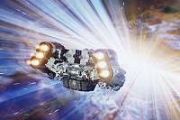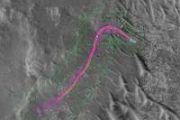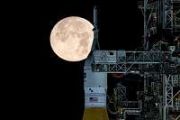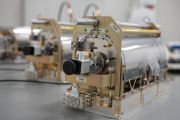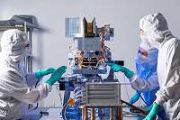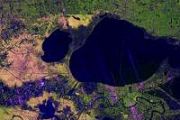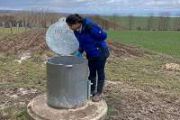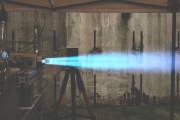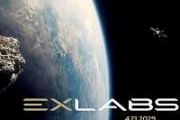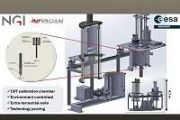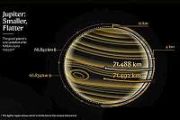
Copernical Team
Spaceflight Inc. and Maritime Launch agree to future Sherpa OTV missions
 Spaceflight Inc., a premier launch and in-space transportation services provider, has signed an agreement with Maritime Launch Services Inc. (NEO: MAXQ, OTCQB: MAXQF) to launch up to five of its Sherpa Orbital Transfer Vehicles (OTVs). The launches will be from Spaceport Nova Scotia aboard the Cyclone-4M beginning in 2025.
Spaceflight has successfully delivered more than 550 spacecraft acr
Spaceflight Inc., a premier launch and in-space transportation services provider, has signed an agreement with Maritime Launch Services Inc. (NEO: MAXQ, OTCQB: MAXQF) to launch up to five of its Sherpa Orbital Transfer Vehicles (OTVs). The launches will be from Spaceport Nova Scotia aboard the Cyclone-4M beginning in 2025.
Spaceflight has successfully delivered more than 550 spacecraft acr Vast Space becomes the newest member of "Space Beach"
 Vast, a pioneer in space habitation technologies, has announced the relocation and major expansion of its corporate headquarters to a newly built facility in Long Beach, California, for the established pipeline of premier aerospace talent, proximity to the port and airport and continued efforts to expand commercial space capabilities in the region.
The new structures, which will house the
Vast, a pioneer in space habitation technologies, has announced the relocation and major expansion of its corporate headquarters to a newly built facility in Long Beach, California, for the established pipeline of premier aerospace talent, proximity to the port and airport and continued efforts to expand commercial space capabilities in the region.
The new structures, which will house the Researchers develop AI method for mapping planets
 Creating geological maps of planetary surfaces such as Mars is a complex process. From data collection to data analysis to publication in different formats - the production of maps is based on a time-consuming, multi-step process.
Deep Learning techniques, which use artificial neural networks to analyze data sets, can significantly improve the production process, as broadly shown in both s
Creating geological maps of planetary surfaces such as Mars is a complex process. From data collection to data analysis to publication in different formats - the production of maps is based on a time-consuming, multi-step process.
Deep Learning techniques, which use artificial neural networks to analyze data sets, can significantly improve the production process, as broadly shown in both s SpaceX Dragon capsule to return to Earth on Wednesday
 The SpaceX Drago cargo spacecraft is expected to splash down on Wednesday off the Florida coast after successfully leaving the International Space Station on Monday.
The capsule arrived about a month ago to deliver about two tons of scientific investigations and supplies to the space station.
NASA astronauts Frank Rubio and Josh Cassada completed two spacewalks in December to ins
The SpaceX Drago cargo spacecraft is expected to splash down on Wednesday off the Florida coast after successfully leaving the International Space Station on Monday.
The capsule arrived about a month ago to deliver about two tons of scientific investigations and supplies to the space station.
NASA astronauts Frank Rubio and Josh Cassada completed two spacewalks in December to ins SpaceX to launch 51 Starlink satellites after weather delay
 SpaceX is counting down to launch another group of Starlink Internet satellites into orbit Tuesday night following a weather delay in California.
SpaceX plans to launch a Falcon 9 rocket topped with 51 of its Internet satellites from California's Vandenberg Space Force Base at 11:02 p.m. EST.
The launch, which had been scheduled for Monday night, was rescheduled due to bad weathe
SpaceX is counting down to launch another group of Starlink Internet satellites into orbit Tuesday night following a weather delay in California.
SpaceX plans to launch a Falcon 9 rocket topped with 51 of its Internet satellites from California's Vandenberg Space Force Base at 11:02 p.m. EST.
The launch, which had been scheduled for Monday night, was rescheduled due to bad weathe Scientific samples, hardware return from International Space Station for more study
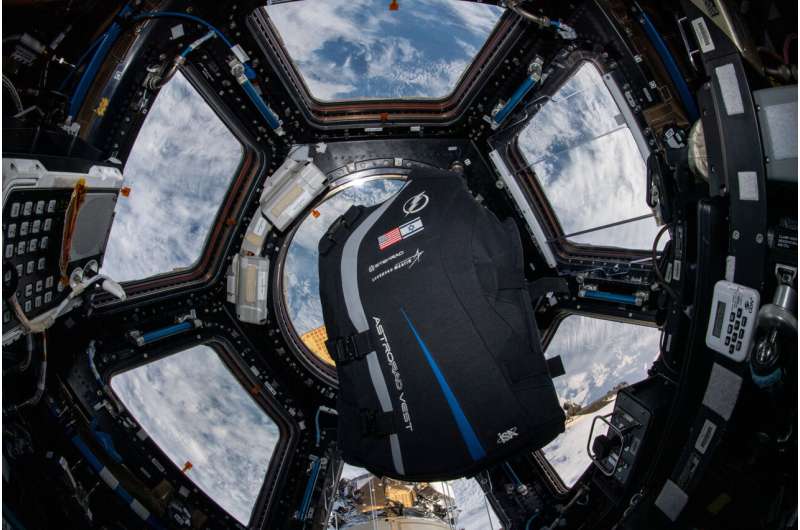
A radiation protection vest, olive oil, and sutured tissues are among the scientific samples returning from the International Space Station on the 26th SpaceX commercial resupply services mission for NASA. The Dragon spacecraft, which arrived at the station Nov. 27, is scheduled to undock on January 9, with splashdown January 11 off the coast of Florida.
The cargo returns to NASA's Kennedy Space Center in Florida, where scientists can make additional observations and analyses of their experiments before the effects of gravity fully kick back in. Many also conduct more in-depth analysis later in their home labs.
China unable to reestablish contact with its Zhurong Mars rover
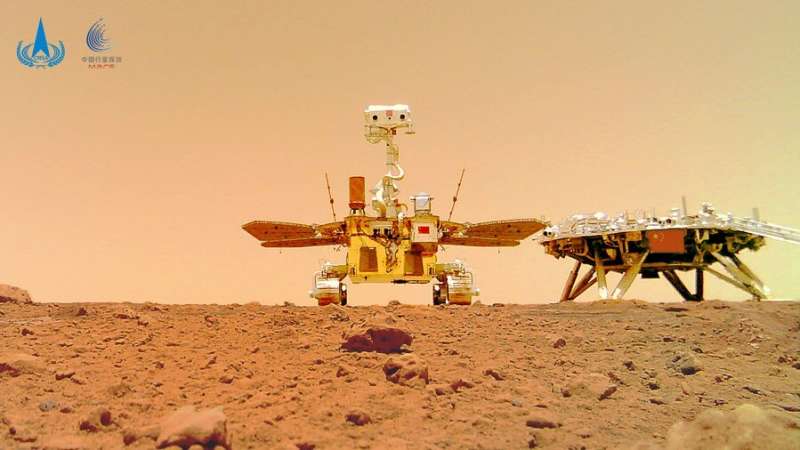
China's National Space Administration (CNSA) has been hoping to reestablish communications with the Zhurong Mars rover, but so far, their efforts have been unsuccessful. Zhurong was put into hibernation over six months ago as it hunkered down in attempts to survive the Martian winter.
But it's been a tough winter in Utopia Planetia in Mars northern hemisphere where Zhurong is located. Not only were the temperatures extremely low, colder than -100°C (-148°F), but a regional dust storm severely reduced the likelihood of the rover collecting any power with its solar panels. This is the same dust storm that has hastened the end of NASA's Mars InSight mission.
According to the South China Morning Post, the mission team predicted Zhurong would resume operations around December 26 as the planet's northern hemisphere entered its spring season and environmental conditions improved.
UK space chiefs vows to try again after failed rocket launch
Space sector bosses on Tuesday said they were disappointed by the failure of the country's historic first attempt to launch satellites from UK soil but pledged to investigate and try again.
The failure of the mission late on Monday is a blow to the UK's fledgling space sector.
Had it been successful, it would have made the UK one of only nine countries able to launch rockets into Earth's orbit.
A Virgin Orbit Boeing 747 carrying the 70-foot (21-metre) rocket took off from a spaceport in Cornwall, southwest England, at 2202 GMT on Monday.
The rocket then detached from the aircraft and ignited as planned at a height of 35,000 feet over the Atlantic Ocean to the south of Ireland at around 2315 GMT.
But as the rocket was due to enter orbit and discharge its nine satellites, scientists reported an "anomaly" that prevented it from reaching orbit.
Virgin Orbit CEO Dan Hart praised the launch teams but said their task had been complicated by the "first time nature of this mission" which had "added layers of complexity".
"We will work tirelessly to understand the nature of the failure, make corrective actions and return to orbit as soon as we have completed a full investigation and mission assurance process," he added.
Virgin Orbit reports 'anomaly' in satellite launch from UK
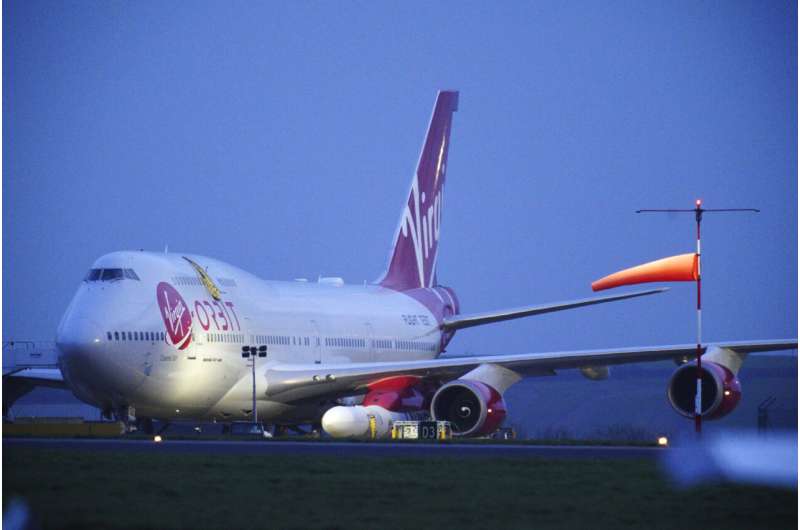
UK space industry mulls setback after satellite launch fails



